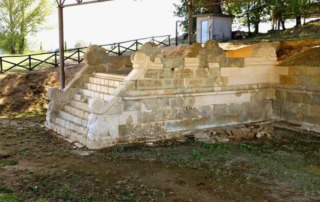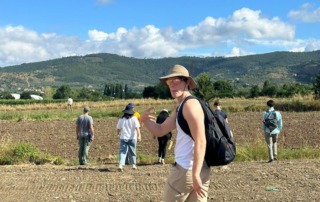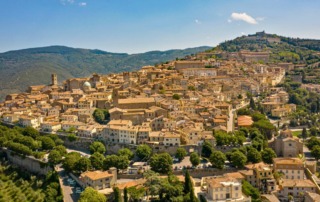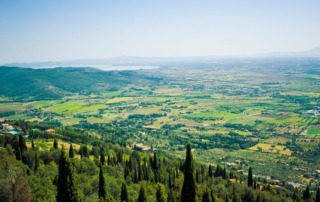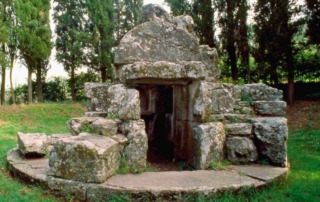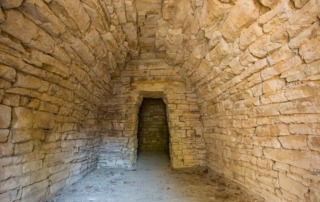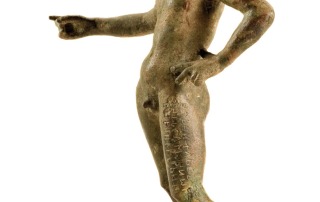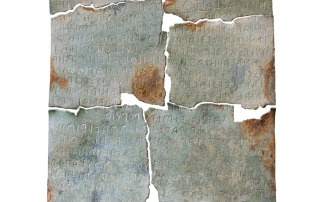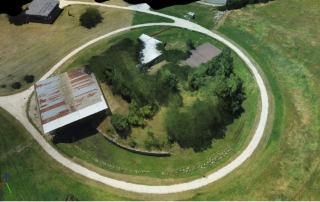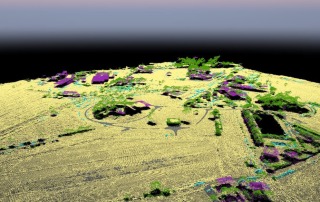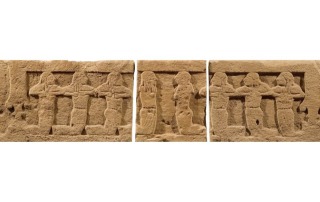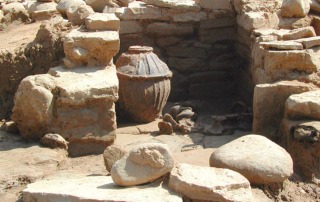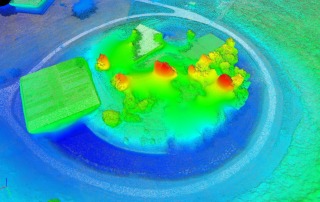Overview
Immerse yourself in the captivating world of the Etruscans and Romans at our archaeological field school based in the breathtaking Tuscan hill-town of Cortona. Inhabited since prehistoric times, Cortona and the surrounding Valdichiana region have witnessed the rise and fall of successive civilizations- from the Etruscans and Romans to later medieval cultures- all leaving an enduring impact on the landscape. The rich cultural tapestry of this valley makes the area one of the most archaeologically dense regions in Tuscany and Central Italy, providing an unparalleled setting for your field school experience.
This intensive program will teach you the fundamentals of landscape archaeology, where you will combine pedestrian surveys with remote sensing technologies to trace the footsteps of ancient peoples. You’ll participate in every phase of the archaeological field survey project, using cutting-edge technology to map the cities, sanctuaries, and tombs that defined the ancient cultural landscape of the surrounding valley. Join IFR for a one-of-a-kind immersive experience that goes far beyond the typical Italian study abroad program—learn firsthand how archaeologists locate sites and reconstruct ancient civilizations, and gain a deep, hands-on understanding of the Etruscan and Roman cultures that have shaped this stunning region’s history and landscape.
Field school highlights:
- Gain hands-on training in advanced survey methods including LiDAR, photogrammetry, AI-driven simulations, drone imaging, GIS mapping and analysis, and more.
- Work side-by-side with expert archaeologists and conservation professionals as you contribute to designing a comprehensive new map of one of Central Italy’s most significant territories.
- Enjoy guided tours of iconic Italian landmarks, savor authentic Tuscan cuisine, and experience the vibrant local culture during your downtime in one of Italy’s most sought-after destinations.
| Course Details | |
|---|---|
| Course Dates | June 15 – July 12, 2025 |
| Course Type | Digital and Cyber Archaeology |
| Instructors | Dr. Maurizio Forte |
| Credits* | 6 semester (9 quarter) |
| Apply By | April 15 |
| Fees Due By | April 15 |
| Program Fees | (2025) |
|---|---|
| Tuition | $4,570 |
| Transcript Fee* | $300 |
| Health & Evacuation Insurance | $130 |
| Room & Partial Board** | $675 |
| TOTAL: | $5,675 |
*This program may accept students past the deadline. Email admissions@ifrglobal.org for more information.
Instructors
The directors welcome emails and inquiries about the research elements of this project. More general information (tuition, health insurance, and payment schedule) can be found under the ‘Students’ tab above. Any further questions may be addressed to IFR staff. Additional details about research, course schedule, travel, accommodation, and safety can be found on the syllabus. Contacting the directors or the IFR office is encouraged and appreciated. It may help you determine if this field school is a good fit for you.
Testimonials
Professor Forte’s Landscape Techno-Archaeology program changed how I think about digital archaeology. I was amazed by how his pioneering approaches have shaped how I later do my own research in applying machine learning to archaeological data.
The summer in Corona was incredible, arguably one of my best summers ever! Instead of just learning from textbooks, we played with real excavation work and cutting-edge digital tools (UAVs, LiDAR, GPR, etc.). Professor Forte has this great way of turning Archaeology into an exciting, adventurous learning experience.
I also met some fantastic people from different universities who share my passion for digital humanities. We’ve become close friends and still keep in touch about our research. If you’re interested in where archaeology meets technology, this program is a must – there’s really nothing else like it out there!
Payment & Student Fees
Application Fee: There is a $45 fee to submit an online application.
Deposit Payment: A nonrefundable $500 deposit is due within 3 weeks of program acceptance in order to secure your place. The remainder of your program fees are due by the deadline indicated under “Course Details”.
*Transcript Fee & Academic Credit Opt Out: If you wish to participate in an IFR field school without earning academic credits, you will not be charged a transcript fee.
For more information about payment, fees, and policies, please see details under our Payment & Finances and Withdrawal and Cancellation Policy pages.
Accommodations
Accommodations are provided by the city of Cortona in the location of Camucia (a few miles from the city center). They are fully equipped apartments with laundry facilities, a kitchen and all the accessories. There is room for about 20 people to be accommodated in different, separate rooms.
Meals: Lunch (lunch boxes) will be provided during all fieldwork activity days. It is important to communicate in advance dietary restrictions, allergies and other important information about food preferences. Students are responsible for their own dinner and breakfast during the week and meals on the weekend.(there are several supermarkets within walking distance from the apartments).
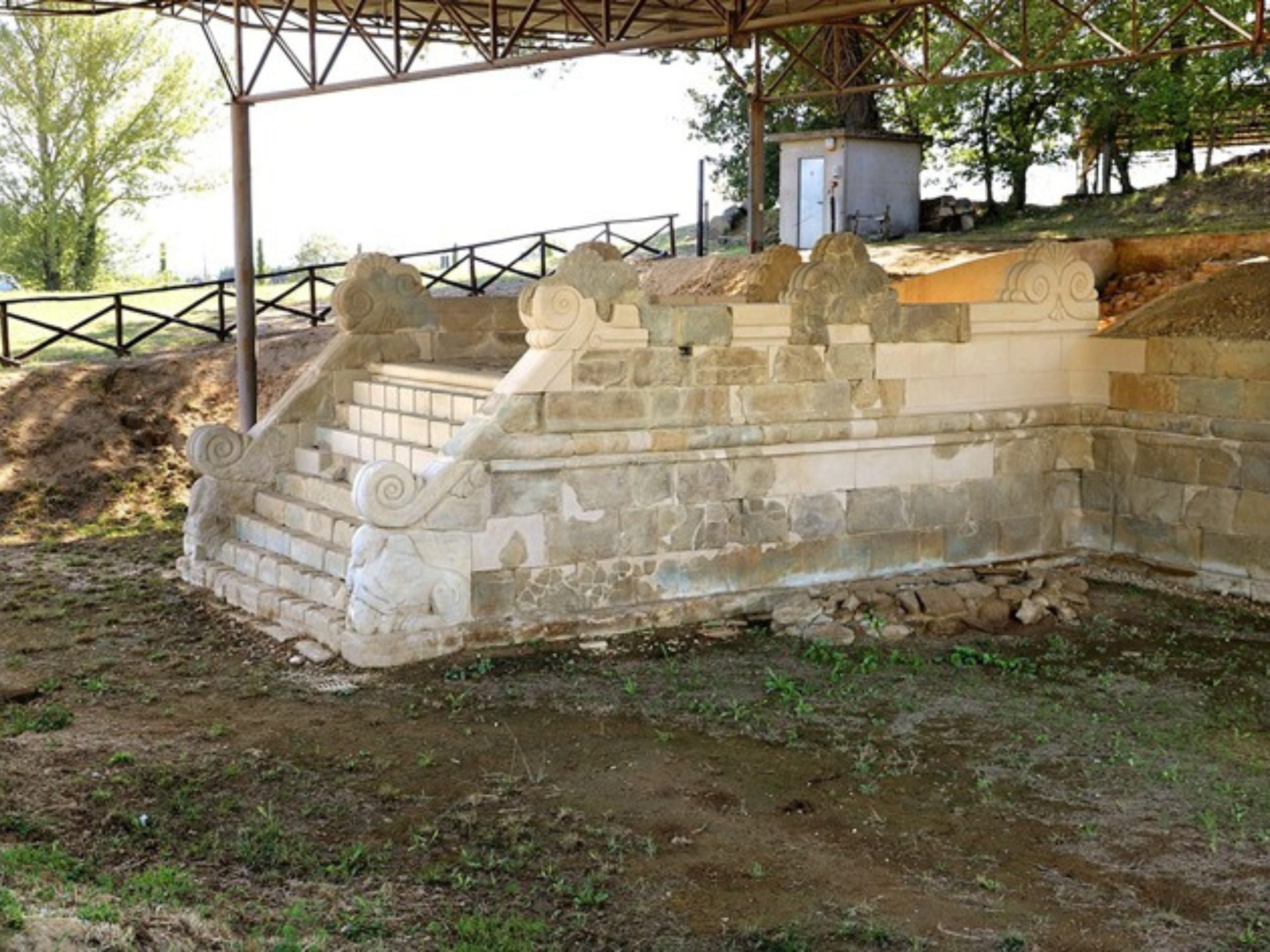
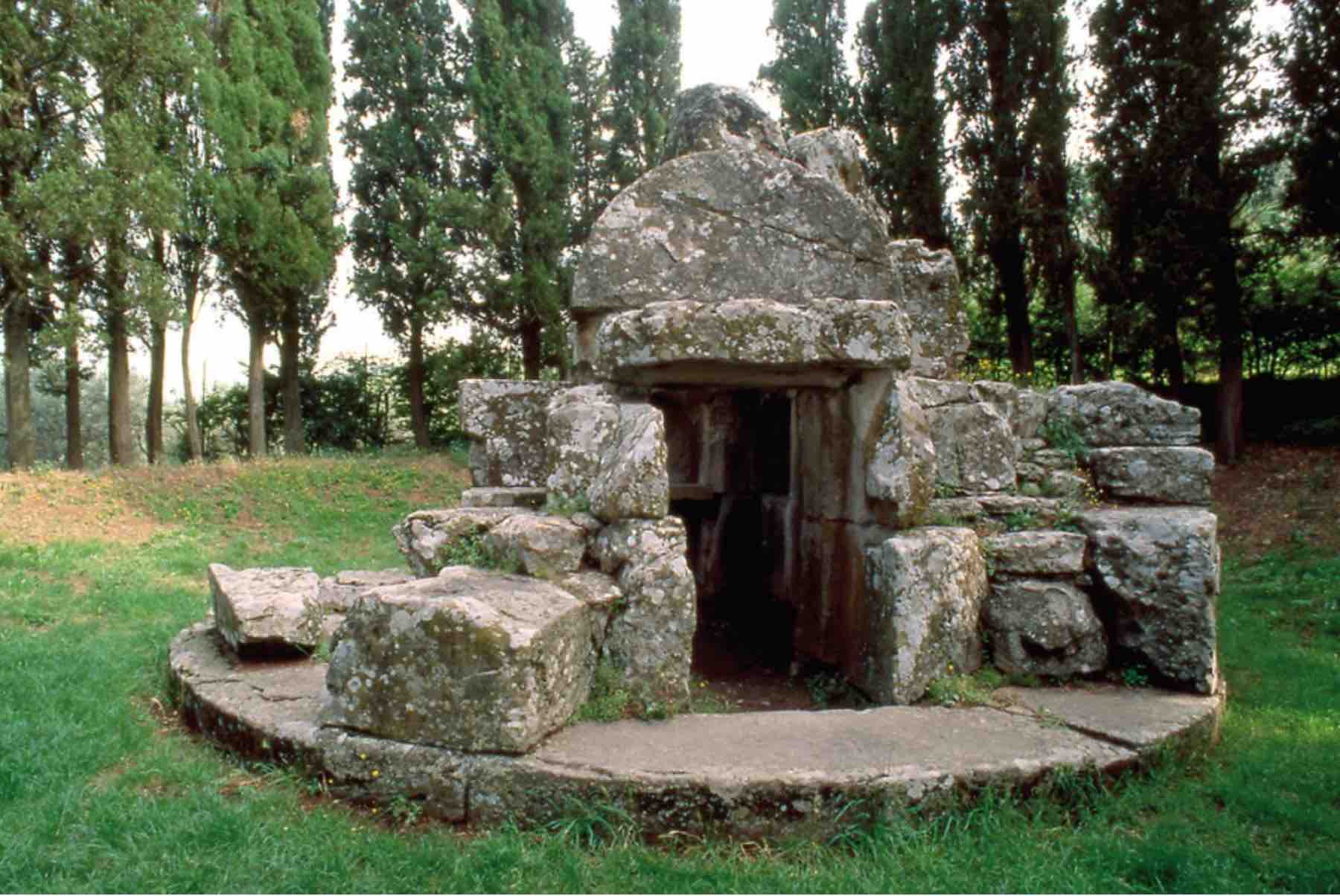
Travel Info
Natural disasters, political changes, weather conditions and various other factors may force the cancellation or alteration of a field school. IFR recommends students only purchase airline tickets that are fully refundable and consider travel insurance in case a program or travel plans must change for any reason.
General information for this program is below, but keep in mind we will discuss any updated travel information and regulations during the required program orientation, which could affect travel plans.
Students will fly into Leonardo da Vinci–Fiumicino Airport in Rome by the morning of June 16th and then take the train to Camucia-Cortona where they will be picked up by the field directors. We will assist students in acquiring the proper train tickets and how to navigate the train system during orientation. All other official program travel, such as daily travel to and from sites and to program events, will be provided by the program. Students may choose to make their own arrangements to travel by bus or train on the weekend to nearby cities such as Florence, Siena, or Orvieto.
If you missed your connection or your flight is delayed, please call, text or email the field school director immediately. A local emergency mobile phone number will be provided to all enrolled students.
VISA REQUIREMENTS
U.S. citizens may enter Italy for up to 90 days without a visa. All non-residents are required to complete a declaration of presence (dichiarazione di presenza) upon their arrival, usually completed at the first accommodation after entry into Italy.
Non-U.S. citizens should consult the information provided by the Italian immigration website https://vistoperitalia.esteri.it/ and contact the project directors.
Anyone intending to stay in Italy for longer than 90 days must obtain a permit of stay (permesso di soggiorno). For more information visit the US State Department website.


